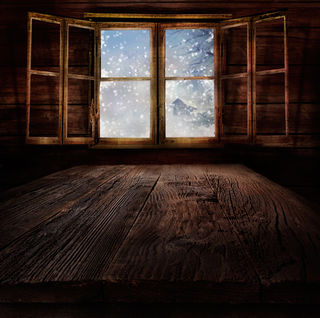Alcoholism
The Miracle of Change
Alcoholism, family, and the miracle of change.
Posted December 23, 2018

I can remember the song “Please, Daddy (Don’t Get Drunk This Christmas)” by John Denver playing in the background and my mother wiping tears from her eyes.
As a child, I didn’t understand why she was crying. In truth, I thought the song was silly, kind of like “Grandma Got Run Over by a Reindeer,” but that John Denver song has been forever etched into my childhood holiday memories. As I got older, I realized that it wasn’t a silly Christmas song, but rather a sad one that resonated with my mother's own childhood memories, and also with the lives of many others living with a loved one who struggles with addiction.
Holiday Brokeness
My mother grew up with an alcoholic father. I could never begin to imagine what each holiday season was like for her and her siblings. My grandfather began drinking around the age of 12, right after his mother passed away. And soon afterward, he dropped out of school and began a relationship with a bottle that lasted most of his life. Because of his alcoholism, I really didn’t know him as my grandfather, even though we lived in the same small town. Alcohol has a way of stealing the spirit right out of a person, making it difficult for loved ones to get close with them.
My memories of my grandfather consisted of him being so drunk that he’d cry, slur words, and use the most colorful vocabulary that would surely get me into hot water if I dared repeated any of it. As a child, I never understood why someone would drink that stuff, since it made them act so foolish. Furthermore, I didn't understand why someone would choose a blasted bottle over their family. I had accepted that my grandfather would never change, he'd made his choice — until one day something just short of a miracle happened.

Memory Lane
To this day, I remember it vividly: I was a senior in high school, my father was deployed to the Gulf War, and as the oldest, I had to assume some of the family responsibilities. One of those responsibilities ended up changing two lives — for the better. You see, my grandfather had received a court order to attend an outpatient alcoholic treatment program for public intoxication. It wasn’t the first time he’d been in trouble for drinking, and truth be told, I doubted it would be the last.
Unfortunately, on this particular occasion, my mother wasn’t able to take him to the intake appointment and asked me to help out. Rest assured that as a teen, I could think of thousands of other things that I’d rather be doing than escorting my grandfather to his appointment. I recall feeling very embarrassed. To add to my misery, my grandfather was illiterate, so I had to read and scribe all of his responses! Fifty years of memories lived in a drunken stupor is a lot for someone to have to revisit, let alone try to recall. One by one I read aloud the questions and wrote down his responses. I was trying to get through them as quickly as possible, because I had more important things to do or so I thought....
The intake questionnaire seemed to go on forever. At one point in time, the room got awkwardly silent; it was then that I lifted my head and saw my grandfather's tears glistening under the rims of his weathered glasses. I watched as a tear slid down the crevices of his soft, wrinkled cheek. At first, I didn’t know how to respond, because our relationship wasn't one of warmth and affection. So, seeing an emotion come from him that wasn't spawned out of drunkenness stirred something in my heart, and I felt a faint connection form. I studied his face, and I saw something I had never seen before — brokenness. I can honestly say that at that moment, I saw my grandfather for the first time.
I became more curious about his life story and began reading at a slower pace, allowing more time for my grandfather to think through each question. Now, when he answered, I heard something I had missed before, regret and sorrow. I began to wonder what it was like having to sit across from your own flesh and blood and see how your choices have impacted those in your family? I saw in his eyes the doors of his past opening as he visited locked-away, painful memories, such as losing his mother, his wife, and his regretful, abusive relationships with his own children. There were times that we'd have to pause while he'd sigh deeply, gathering himself before proceeding.
Sometimes he’d get lost in the gaps between the past and present. Those moments were magically transformational for both of us. That day, a miracle occurred. This miracle wasn't one of childhood fairy tales, but rather consisted of moments in time, silence, and self-reflection. Those three elements transformed both our lives.

The Miracle of Change
That day, my grandfather made the decision to stop drinking. He chose to change. To this day, I cringe when people say, “It’s too late to change.” It’s never too late to change. It’s never too late for a miracle.
I really can’t explain how change occurs — sure, there are counseling theories and models that break it into steps — but sometimes it just happens, and when it does, it can be transforming not only to the people who are undergoing it, but also to those around them.
My grandfather passed away many years ago, and he lived his last nine years sober. Each holiday season, I still think of that John Denver song. Only now it’s not tied to the pain in my mother’s tears; rather, it's attached to the miracle that I was blessed to witness and experience. My grandfather's life journey significantly impacted my life, and truth be told was an instrumental part of my decision to enter into the counseling profession. Yes, my grandfather taught me two of life’s greatest lessons. First, it’s never too late to change, and second, miracles do happen. And when those two things coincide, you'll see the true miracle of change.




